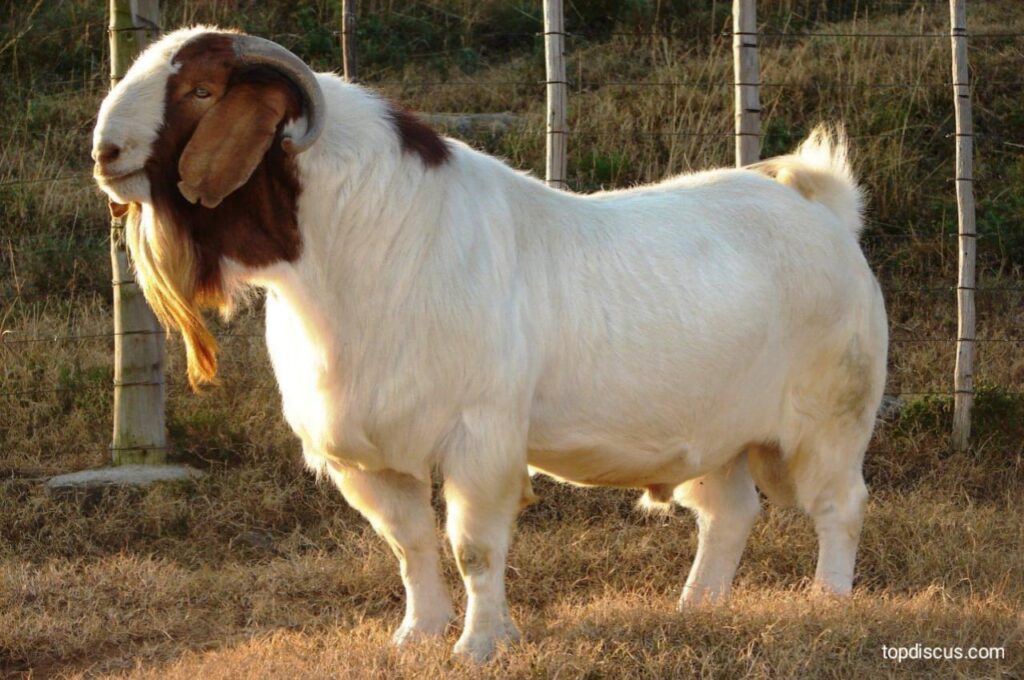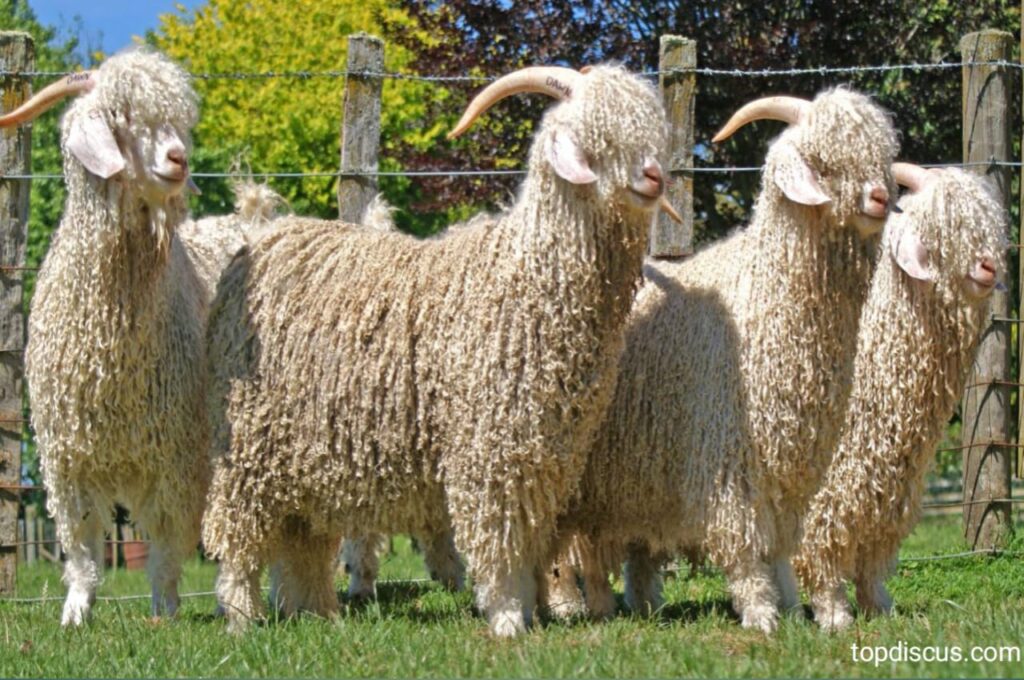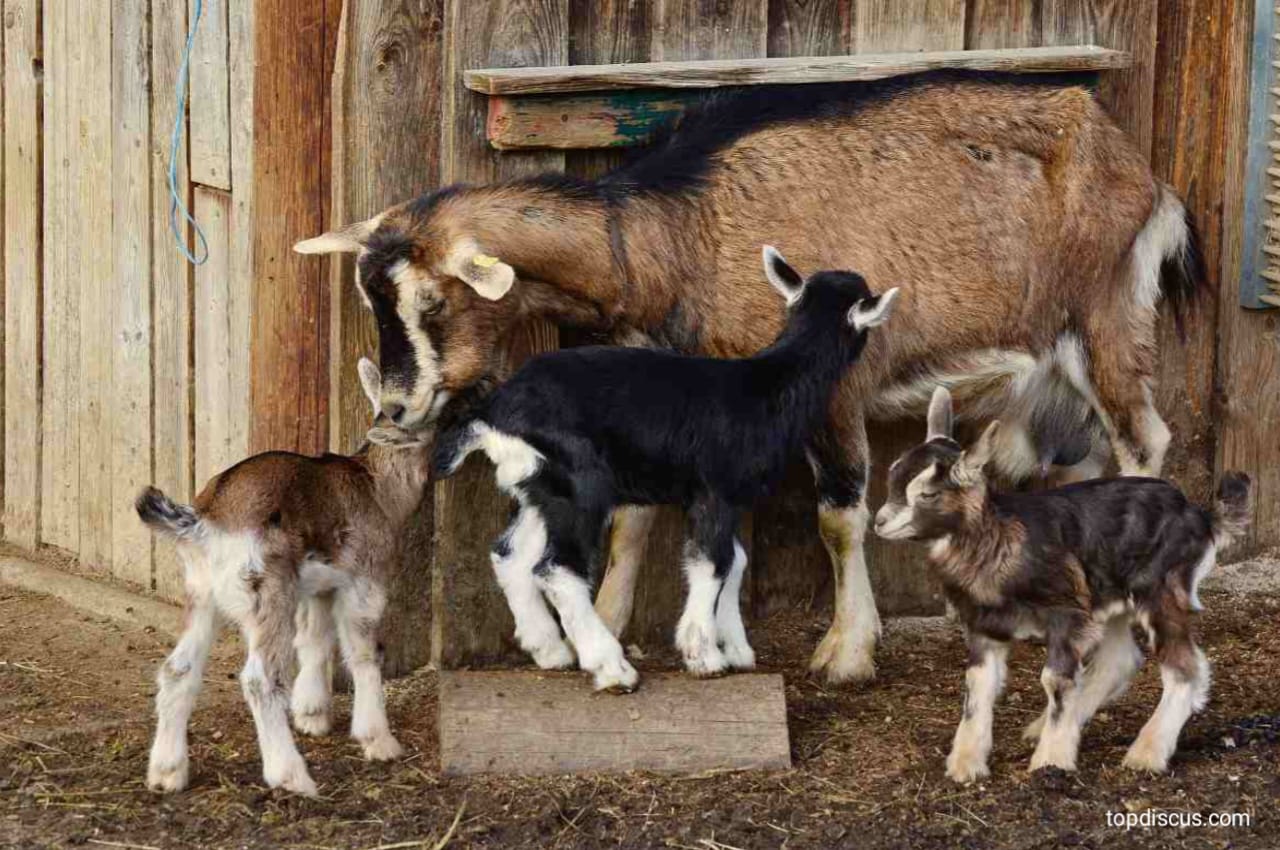This blog post will explore the top 5 tips for goat farming in backyards. Welcome to the world of backyard goat farming! If you’ve ever dreamed of having your herd of adorable goats in your backyard, this article is for you. Goat farming has been gaining popularity among urban and suburban dwellers for its numerous benefits and rewarding experiences.
Not only do these charming creatures provide companionship and entertainment, but they also offer a sustainable source of milk, meat, and fibre. From choosing the right breed to creating a suitable environment and ensuring proper nutrition and health management – we’ve got you covered. So, let’s dive in and discover how to embark on this exciting journey towards self-sufficiency while enjoying the joys of goat keeping!
Choosing the Right Breed for Backyard Goat Farming:
When starting a backyard goat farm, selecting the right breed is crucial. Each species has unique characteristics, so it’s essential to consider your specific needs and goals before deciding.
Here are some descriptions of famous goat breeds that you might find instrumental and profitable:
1. Nigerian Dwarf Goat
2. Boer Goats
3. Angora or Cashmere Goats
1. Nigerian Dwarf Goat:
 One popular breed for backyard farming is the Nigerian Dwarf goat. These pint-sized goats are adorable, easy to handle, and require less space than larger breeds. They produce high-quality milk with a higher butterfat content, making them ideal for dairy.
One popular breed for backyard farming is the Nigerian Dwarf goat. These pint-sized goats are adorable, easy to handle, and require less space than larger breeds. They produce high-quality milk with a higher butterfat content, making them ideal for dairy.
2. Boer Goats:
 Boer goats are an excellent choice if you’re looking for meat production. Known for their fast growth rate and superior carcass quality, these goats are highly sought after in the meat industry. However, remember that they require more pasture space compared to other breeds.
Boer goats are an excellent choice if you’re looking for meat production. Known for their fast growth rate and superior carcass quality, these goats are highly sought after in the meat industry. However, remember that they require more pasture space compared to other breeds.
3. Angora or Cashmere Goats:
 Angora or Cashmere goats may be more suitable for those interested in fiber production or pets with endearing personalities. Their luxurious coats can be transformed into soft yarns or admired as charming additions to your backyard.
Angora or Cashmere goats may be more suitable for those interested in fiber production or pets with endearing personalities. Their luxurious coats can be transformed into soft yarns or admired as charming additions to your backyard.
Before finalizing your decision on a goat breed, consider factors such as climate suitability and local regulations regarding livestock ownership. Additionally, take into account your available resources and level of experience in handling different breeds.
Remember that each breed has its own care requirements and temperaments; therefore, thorough research is essential when selecting which type of goat will thrive best in your backyard farm environment. Click Here to Visit Our Homepage.
Health and Disease Prevention for Backyard Goats:
Keeping your backyard goats healthy is essential for their well-being and productivity. You can ensure a thriving goat farming venture by implementing proper health and disease prevention measures. Here are some tips to help you maintain the health of your backyard goats.
1. Regular Veterinary Check-ups
2. Biosecurity Measures
3. Parasite Control
4. Clean Living Environment
5. Proper Nutrition
1. Regular Veterinary Check-ups:
Schedule regular visits with a veterinarian specializing in goat care. They will conduct thorough examinations, provide vaccinations, and offer preventive treatments for common diseases.
2. Biosecurity Measures:
Implement strict biosecurity protocols to prevent the introduction and spread of diseases on your farm. This includes quarantine procedures for new animals, practising good hygiene by regularly cleaning feeders and water troughs, and limiting visitors’ access to minimize disease transmission.
3. Parasite Control:
Goats are susceptible to internal parasites such as worms, which can cause serious health issues if left untreated. Develop a deworming schedule recommended by your veterinarian to keep parasites at bay.
4. Clean Living Environment:
Maintain clean living quarters for your goats by regularly removing manure and providing pure bedding materials such as straw or wood shavings. A clean environment helps prevent the spread of bacteria that can lead to illness.
5. Proper Nutrition:
A balanced diet is crucial for optimal goat health. Please provide them with high-quality hay or pasture grass and appropriate supplements based on their nutritional needs determined by a veterinarian or livestock nutritionist.
By following these guidelines, you’ll be taking proactive steps toward ensuring the good health of your backyard goats while minimizing the risk of diseases affecting their overall well-being.
Creating a Suitable Environment for Goats:
Creating a suitable environment for backyard goats is crucial for their health, well-being, and productivity. Here are some tips to help you make the perfect space for your goats.
1. Ensure that you have enough space to accommodate your goats comfortably. They need room to roam and graze. An acre of land can support around six to eight goats, but this may vary depending on the breed and size of the animals.
2. Provide proper shelter for your goats. A sturdy and secure barn or shed is essential to protect it from extreme weather conditions such as rain, wind, or excessive heat. Ensure the shelter is well-ventilated and has enough bedding for warmth during colder months.
3. Goats are notorious escape artists, so it’s essential to have secure fencing in place. Use materials like woven wire or electric fences that are tall enough (at least four feet) to prevent them from jumping over or squeezing through gaps.
4. Offering ample fresh water is another crucial aspect of creating a suitable environment for your goats. Ensure they have access to clean water at all times by providing troughs or buckets that are securely anchored.
Consider providing enrichment activities in their environment, such as platforms, climbing structures, or toys. Goats love exploring and playing, which helps keep them mentally stimulated and happy.
Following these tips and providing a suitable environment for your backyard goats will set them up for success in their farming journey!
For more information
Proper Nutrition and Feeding for Healthy Goats:
Proper nutrition and feeding play a crucial role in maintaining the health and well-being of your backyard goats. Providing them with a balanced diet that meets their nutritional requirements is essential.
Make sure to offer fresh, clean water at all times. Goats need access to plenty of water for proper digestion and hydration. Clean the water containers regularly to prevent the growth of bacteria.
Next, provide good quality forage such as grasses, hay, and browse. These roughage sources are essential for goats’ digestive systems and help maintain healthy rumen function. Introduce a variety of plants into their diet to ensure they receive a wide range of nutrients.
Supplement their diet with grain or concentrate feed specifically formulated for goats. This will help meet their energy needs, mainly when grazing or browse availability is limited.
Additionally, consider offering mineral supplements to ensure your goats receive essential minerals like calcium, phosphorus, magnesium, and selenium. Consult with a veterinarian or agricultural specialist to determine the appropriate type and amount of mineral supplementation based on your goat’s needs.
Avoid overfeeding as it can lead to obesity and related health issues in goats. Monitor their body condition regularly by assessing fat deposits along the backbone and ribs.
Remember that each goat has unique dietary requirements depending on age, breed, pregnancy status, and lactation stage, so consult an expert who can guide you in developing an optimal feeding plan tailored to your herd’s specific needs.
Benefits of Keeping Goats in Your Backyard:
Having goats in your backyard can benefit you and your property. These versatile animals offer a range of advantages that make them an ideal addition to any backyard farm.
Goats are excellent weed-control experts. They have an instinct for munching on unwanted plants, shrubs, and overgrown areas. Instead of spending hours laboriously pulling weeds or using harmful chemicals, let your goats graze freely and watch as they clear the land for you.
Additionally, goats are highly efficient at converting plant material into nutrient-rich manure. Their droppings can be used as an organic fertilizer for your garden or crops, promoting healthy growth and reducing the need for chemical-based alternatives.
Furthermore, goat milk is another valuable benefit of backyard goat farming. It is known for its high nutritional content and creamy texture. It tastes great and can also be used to make delicious cheeses, yogurts, soaps, and lotions.
Moreover, keeping goats in your backyard provides a sustainable source of fresh meat if you raise meat breeds. This allows you to have greater control over the quality of the meat consumed by your family while supporting self-sufficiency.
Last but not least important is the companionship that goats provide. They are intelligent creatures with friendly personalities that can quickly become beloved family members. Spending time with these curious animals can be therapeutic and rewarding. For more valuable ideas and information, Click Here to visit our Website.
Conclusion:
Backyard goat farming can be rewarding and fulfilling for those with the space and willingness to raise these fantastic animals. Following the top 5 tips in this article, you can ensure your goats thrive in their new environment.
Remember to choose the right breed of goats that suits your needs and preferences. Whether it’s for milk production, meat, or simply as pets, there is a wide range of breeds to choose from. Consider factors such as temperament, size, and climate adaptability when deciding.
Creating a suitable environment for your backyard goats is crucial for their well-being. Please provide them with ample shelter from harsh weather conditions and predators. Fence off an area where they can graze freely while ensuring they can always access fresh water.
Proper nutrition plays a vital role in keeping your goats healthy. A balanced diet of quality hay or pasture grasses supplemented with grains and minerals will help meet their nutritional needs. Consult a veterinarian or experienced goat farmer to determine your breed’s best feeding regimen.
Prioritize health and disease prevention by implementing regular vaccinations and deworming protocols recommended by professionals. Monitor your goats closely for any signs of illness or abnormal behaviour so that prompt action can be taken if needed.
Goat farming in backyards provides food and offers companionship and satisfaction as you nurture these intelligent creatures. Remember that every aspect requires time, effort, dedication, and patience.
So why wait? Start planning now! With proper care and attention given to these magnificent animals and some basic knowledge of goat farming practices discussed above, success is just around the corner!
Happy goat farming!
